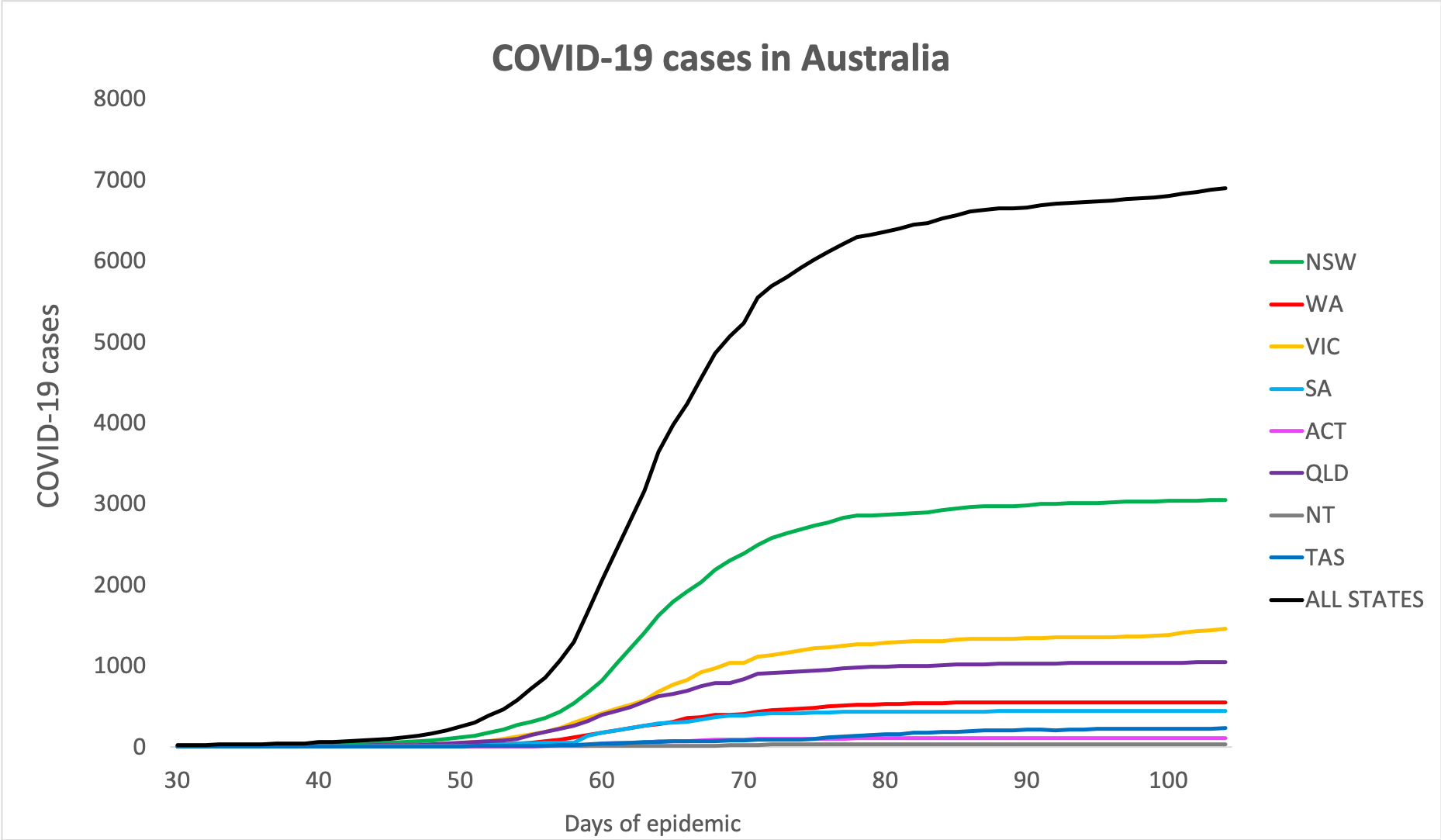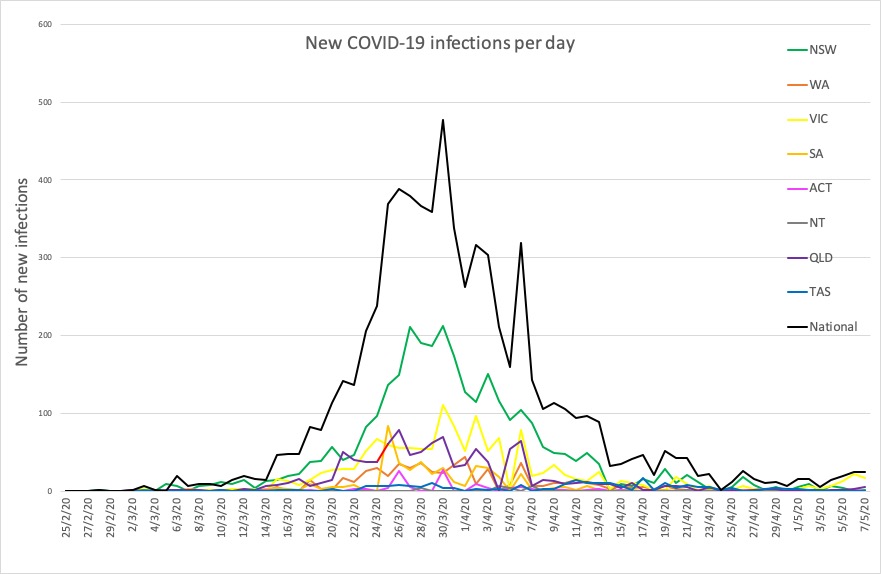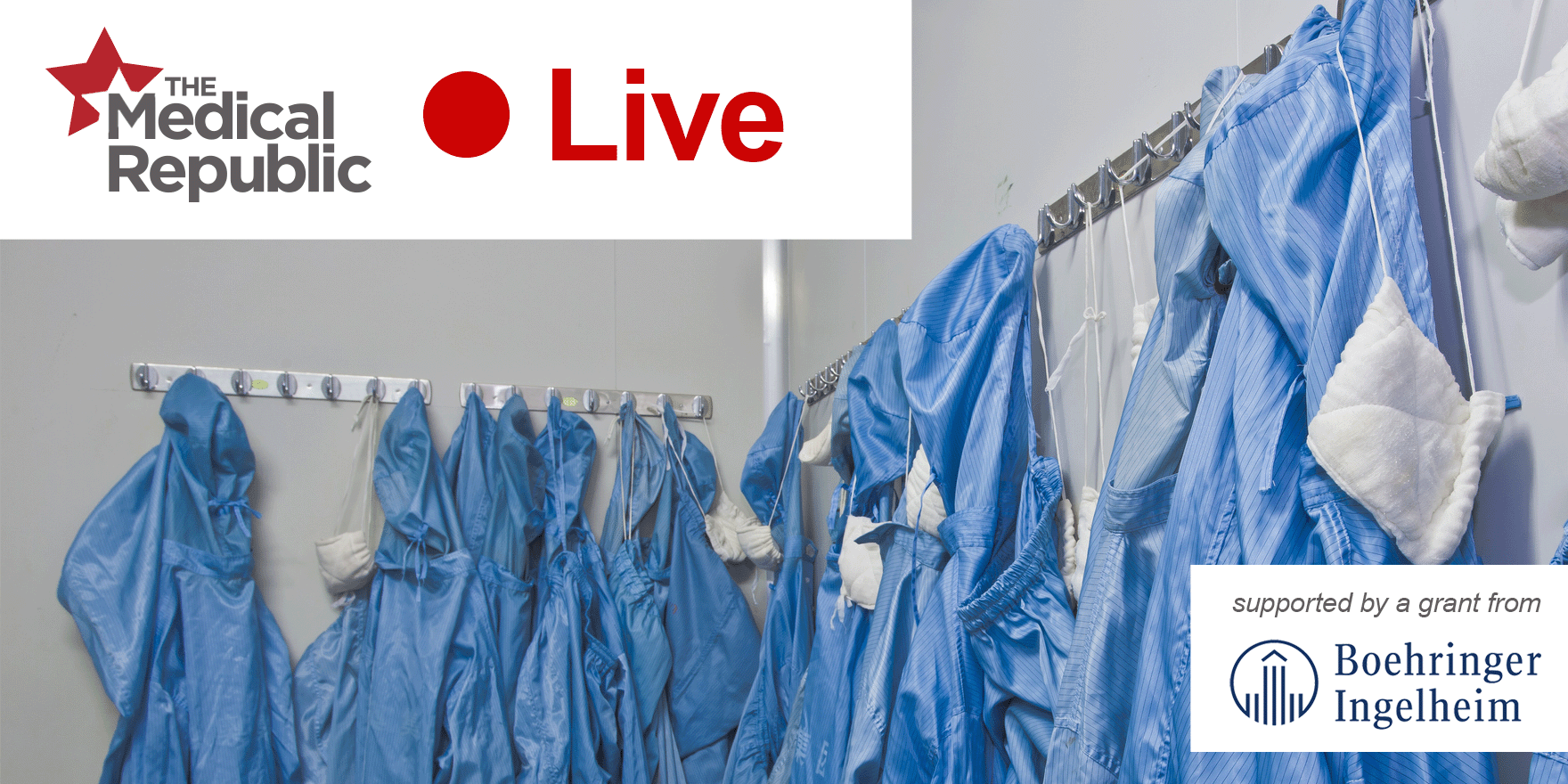The National COVID-19 Clinical Evidence Taskforce has recommended the use of preventive doses of anticoagulants in adults with moderate COVID-19 illness unless contraindicated
Welcome to Friday afternoon on the The Medical Republic‘s live COVID-19 blog.
Australia now has a three-step process for easing restrictions.
Any tips, comments or feedback, email me at bianca@biancanogrady.com.
The latest
- Consider prophylactic anticoagulation in moderate COVID-19 infection, Australian expert taskforce says.
- COVID-19-related hyperinflammatory shock reported in cluster of eight children in London.
- Can COVID-19 be transmitted sexually? Study finds SARS-CoV-2 RNA in semen.
- With emerging evidence on the incidence of venous thromboembolism in people with COVID-19, the National COVID-19 Clinical Evidence Taskforce has recommended the use of preventive doses of anticoagulants in adults with moderate COVID-19 illness unless contraindicated.
The Taskforce – a collaboration of Australia’s peak health professional bodies working on ‘living’ guidelines for management of COVID-19 – has put out its latest update based on evidence that has emerged in the past week.
This included a recommendation that adults with moderate COVID-19 can be given prophylactic anticoagulants – preferably low-molecular-weight heparin – to reduce the risk of venous thrombosis, unless there is a risk of major bleeding. The Taskforce is also reviewing the evidence on high-dose venous thromboembolism prophylaxis in patients with severe and critical COVID-19.
On the question of remdesivir, the taskforce reiterated its previous recommendation that all experimental therapies – including remdesivir – should only be given to patients in randomised clinical trials with appropriate ethical approval.
They also recommended considering putting adults with COVID-19, and hypoxaemia despite optimal ventilation, into the prone position.
- UK researchers have reported on a cluster of eight paediatric cases of possible COVID-19 associated hyperinflammatory shock, also known as Kawasaki disease shock syndrome.
A paper in the Lancet described the cluster, which occurred over 10 days in April, in which the children presented with unrelenting fever, variable rash, conjunctivitis, peripheral oedema, gastrointestinal symptoms and generalised pain in the extremities.
All the children progressed to warm, vasoplegic shock that needed treatment with noradrenaline and milrinone. Seven of the children needed mechanical ventilation for cardiovascular but not respiratory problems.
One child died from a large cerebrovascular infarct but the remaining seven were discharged.
Interestingly, none tested positive for SARS-CoV-2 on admission, but four were known to have had contacted with infected family members, two tested positive later (including the child who died), and all eight later developed antibodies to SARS-CoV-2.
“We suggest that this clinical picture represents a new phenomenon affecting previously asymptomatic children with SARS-CoV-2 infection manifesting as a hyperinflammatory syndrome with multiorgan involvement similar to Kawasaki disease shock syndrome,” the authors wrote.
All but one of the children were ‘well above’ the 75th centile for weight, six were of Afro-Caribbean descent, and five were male.
The authors noted that since this study had been submitted, their paediatric intensive care unit had managed more than 20 children with similar clinical presentation.
- Is COVID-19 sexually-transmitted? Despite recent headlines about SARS-CoV-2 being found in the semen of infected men, the answer isn’t necessarily ‘yes’.
A study published in JAMA Network Open reports the finding that of 38 men hospitalised in China with laboratory-confirmed COVID-19, six had detectable SARS-CoV-2 RNA in their semen.
“Owing to the imperfect blood-testes/deferens/epididymis barriers, SARS-CoV-2 might be seeded to the male reproductive tract, especially in the presence of systemic local inflammation,” the authors wrote.
However in a piece in The Conversation, researchers commented that the presence of viral RNA in semen doesn’t necessarily mean that there is infectious virus there. But, as they pointed out, given the high contagiousness of SARS-CoV-2 by non-sexual routes, by the time you’re exposed to an infected person’s semen, there are probably a whole lot of other SARS-CoV-2-laden body fluids that have already been exchanged.
- As many countries – Australia included – look to ease COVID-19 lockdowns, the WHO Director-General Dr Tedros Adhanom Ghebreyesus has reminded the world of six essential criteria that WHO argues need to be met before lifting restrictions:
1. countries must have strong surveillance, declining cases, and controlled transmission;
2. the health system must have the capacity to detect, isolate, test and treat every COVID-19 case and contacts;
3. outbreak risks must be minimised in special settings such as health facilities and aged care;
4. essential venues such as schools must have preventive measures in place.
5. the risks of importing the virus must be managed;
6. communities must be fully educated, engaged and empowered to adjust to “the new norm”.
“The risk of returning to lockdown remains very real if countries do not manage the transition extremely carefully and in a phased approach,” Dr Ghebreyesus said at a press conference.
He also stressed the importance of learning from this pandemic to prepare for the next one, particularly with respect to investing in resilient health systems.
“History will judge all of us not only on whether we got through this pandemic but also the lessons we learned and the actions we took once it was over.”
9.50am, 8 May
- Here are today’s confirmed COVID-19 infections from around Australia, to 9pm yesterday. After two weeks of no new infections, South Australia has unfortunately recorded one new case – a man in his 70s who acquired it overseas.
National – 6896 (up 21) with 97 deaths and 6035 listed as recovered
ACT – 107
NSW – 3044
NT – 29
QLD – 1045
SA – 439
TAS – 226
VIC – 1455
WA – 551


Disclaimer: The content on the Medical Republic COVID-19 blog is independently created by Medical Republic without input from Boehringer Ingelheim Pty Ltd. The views, information, or opinions expressed on the Medical Republic COVID-19 blog are Medical Republic’s own and do not necessarily represent those of Boehringer Ingelheim Pty Ltd. Boehringer Ingelheim Pty Ltd is not responsible for and does not verify the accuracy of any content on the Medical Republic COVID-19 blog.


